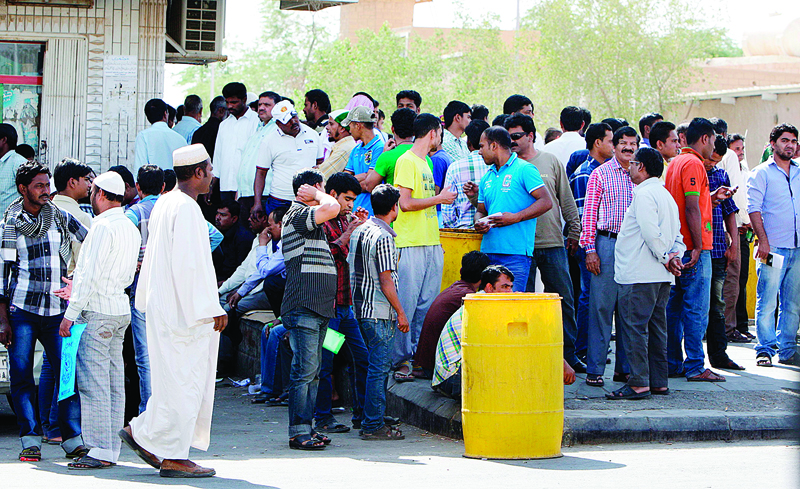
RIYADH: Saudi Arabia yesterday announced new plans to ease foreign workers' contractual restrictions, abolishing a controversial seven-decade-old sponsorship system known as kafala. The plans, to take effect in March 2021, aim to make the Saudi labor market more attractive, the deputy minister for human resources said, by granting foreign workers the right to change jobs and leave the country without employers' permission.
"Through this initiative we aim to build an attractive labor market and improve the working environment," Abdullah bin Nasser Abuthunain told reporters. Saudi Arabia, which chairs the Group of 20 major economies (G20) this year, is seeking to boost its private sector, part of an ambitious plan to diversify its oil-dependent economy.
The move will help attract high-skilled workers and help create more jobs for Saudi nationals, Sattam Alharbi, deputy minister for development of the work environment, told Reuters in a phone interview, adding that hiring would be based on workers' efficiency. Saudi Arabia's Vision 2030 reform plan is a package of economic and social policies designed to free the kingdom from reliance on oil exports.
The currently applicable kafala system generally binds a migrant worker to one employer. Rights groups, including Amnesty International, have been calling on Saudi authorities to end that system which leaves workers vulnerable to abuses. "The term kafala does not officially exist in Saudi labor laws since more than 20 years ago; however, there were many wrong practices of it that helped breach the contractual relation," Alharbi said.
However, he said the new regulations will not apply to the country's 3.7 million domestic workers, a highly vulnerable category of employees who are governed by separate regulations which he said are also under review. The new initiative will base the relation between employers and workers on a standard contract that should be certified by the government, and will allow workers to apply directly for services via an e-government portal, instead of a mandatory employers' approval. The ministry aims to certify the contracts of all foreign workers by the end of the first quarter of 2021.
After the disruption that came with the coronavirus pandemic, campaigners say potentially hundreds of thousands of "illegal" workers - many of whom have become undocumented through no fault of their own - remain stranded in Saudi Arabia. Activists have asked the kingdom to offer an amnesty to migrant workers who are trapped by their debts and not allowed to work to pay them off - a predicament that risks fuelling the pandemic.
Neighboring Qatar is also scrapping key aspects of its labor rules, including the requirement for some workers to obtain their employer's permission to change jobs and exit permits to leave the country. It has passed a series of reforms since being selected to host the 2022 World Cup, setting in motion a vast construction program employing foreign workers that has come under constant fire. - Agencies











